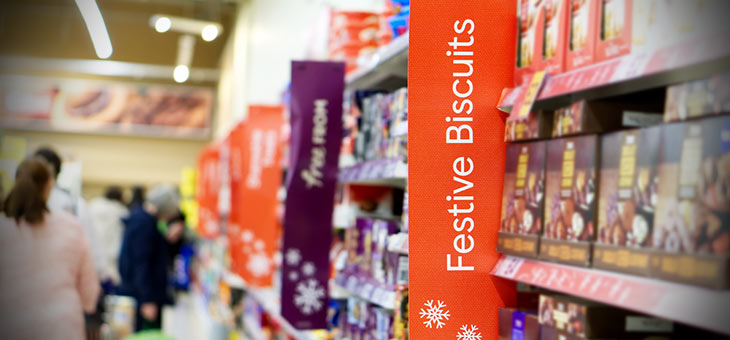As if Christmas wasn’t expensive enough, this year, according to the CHOICE Christmas Basket Challenge, the festive season will be even more costly than in previous years.
Each year, CHOICE conducts the comparison by putting together a shopping list of 22 items typically purchased around Christmas, then compares prices for these items across Aldi, Coles and Woolworths on the same day.
“Christmas is set to be more expensive this year,” says CHOICE consumer advocate Jonathan Brown.
“We compared the Christmas basics across Coles, Woolworths and Aldi. It wouldn’t be Christmas without candy canes, mince pies, pavlova and finding bits of tinsel around the house weeks later.”
This year, the analysis revealed that Coles and Woolworths customers will pay more for Christmas purchase than they did in 2018, with Aldi continuing its streak as the angel at the top of the cheap Christmas tree.
“When it comes to price, Aldi is the clear winner for a cheap Christmas, but of course other factors often come into consideration at Christmas, too. CHOICE’s Supermarket Satisfaction Survey earlier this year found that local supermarket brands were highly rated for their fresh food and customer service, so if freshness and service matters to you, it might be worth considering a local brand.”
Aldi’s Luxury Christmas Pudding has already topped CHOICE’s expert blind taste test, beating out the Coles equivalent. The low-cost supermarket has now also won the festive custard blind taste test.
New research from IT and consulting service Accenture found that Australians will spend an average of $686 each this Christmas, with more than half of that ($351) going on groceries.
Grocery costs (35 per cent), disposable income (31 per cent) and utility costs (25 per cent) were the main factors influencing Christmas spend.
The same study also revealed that more than four in 10 of the 1000 survey participants said that they want to make ethical choices with the money they spend this year. They’ll do this by supporting small business, local or environmentally conscious retailers and by being aware of the origin of manufacture.
“There is a growing trend toward consumers spending their money on brands that reflect their values and who demonstrate they are taking positive steps to improve sustainability through their business practices,” said Accenture’s Glenn Heppell.
“As consumers become more environmentally and socially aware of the impact retailing has on the environment, retailers need to design their products and business around responsible initiatives.”
According to a report by PayPal, conscious consumers “know that their purchases have an impact and are willing to back their beliefs with their wallets”.
“They use their purchasing power to boycott brands that have a negative impact on society or the environment and reward those that align with their values,” said the report.
To that end, CHOICE experts (and the YourLifeChoices team) are getting behind the #buyfromthebush campaign.
“Really, what I want is something made with love and care in Australia by someone who has been affected by our drought. That’s what I want and what I’ll be buying for others,” said CHOICE managing editor Margaret Rafferty
Visit CHOICE for more Christmas gift guides and grocery tips.
How much do you think you’ll spend this Christmas?
If you enjoy our content, don’t keep it to yourself. Share our free eNews with your friends and encourage them to sign up.
Related articles:
Christmas credit card safety
DIY Christmas decorations
Christmas gifts that count

